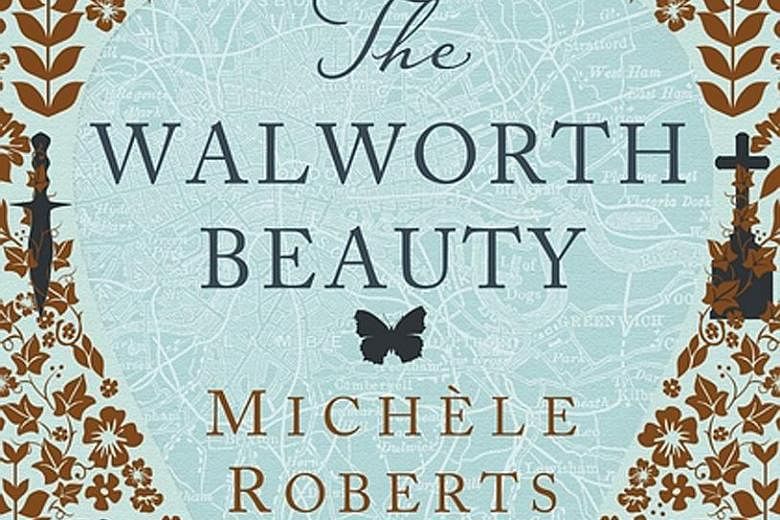In Victorian England, members of the poor and working class were often cast a dismissive eye.
In particular, writing off the prostitutes who thronged the squalid streets of London as criminals who were "lazy, work-shy, immoral exploiters of gullible drunken men" was common rhetoric .
Booker Prize-nominated writer Michele Roberts contests this version of history in her latest novel, which intersperses the stories of two wanderers of the London streets, their lives set 150 years apart.
There is Joseph Benson, a bumbling researcher for Victorian social scientist Henry Mayhew, the real-life author of the journalistic work London Labour And The London Poor. A pompous, middle-class family man, he is tasked to interview prostitutes for the book, finding out about the conditions that had forced these women into the unsavoury business.
Closer to the present, retired English lecturer Madeleine moves into a Victorian house in South London that Joseph had once visited for his research work. She is a curious and critical reader of Mayhew's work on the London poor and, during her time in the house, ghostly echoes of history - strange voices that surface, startling shifts in atmosphere - criss-cross her path with Joseph's.
Roberts makes several cogent points about gender dynamics in the sex trade. Joseph's interactions with Mrs Dulcimer, owner of a women's lodging house where many prostitutes seek refuge, expose his patriarchal narrow-mindedness: He expresses surprise at Mrs Dulcimer's cool revelation that they, too, are literate and even read Shakespeare for leisure.
-
FICTION
- THE WALWORTH BEAUTY

By Michele Roberts
Bloomsbury Publishing/ Paperback/ 387 pages/ $29.95/Books Kinokuniya
3/5 stars
While Joseph initially seeks simplistic answers that further castigate women for engaging in the sex trade, Mrs Dulcimer notes that men are complicit in the business. "If there were no demand for their services, there would be no prostitutes," she points out.
Counterpointing these observations against Madeleine's modern- day experience yields further questions. Unlike Victorian women, she is able to traverse the city freely on her own without propositions from men, and Roberts captures the rapture of urban exploration in prose that leaps off the page: trains "grind, slither and squeak"; the Millennium Bridge "sways out like a gossamer"; the rippling Thames River melds into the darkness under the cover of night.
Still, double standards exist and women remain vulnerable - a male friend says he can never think of women as flaneurs, an intellectual role reserved for only "nineteenth-century chaps like Baudelaire". An encounter with a man gone awry stokes Madeleine's genuine fear of sexual assault as she walks alone at night.
But while it is structurally sophisticated and meticulously researched, a lack of narrative pull ultimately weighs the novel down. Madeleine's interest in Mayhew's research comes across as an all-too-convenient way for Roberts to insert feminist commentary on the topic of London street-walkers into the novel, and there is little besides Madeleine's constant preoccupation with this topic that keeps the plot moving along.
At one point, for example, Madeleine lectures: "I read Mayhew, but it's his researcher giving his version of what women say." Such explicitly revisionist pronouncements leave too little to the reader's imagination and the book may be better off if it had been presented as a work of non-fiction instead.
If you like this, read: The Crimson Petal And The White by Michael Faber (Canongate Books, 2002, $21.75, Books Kinokuniya), which tells the story of Sugar, a prostitute in Victorian London.

